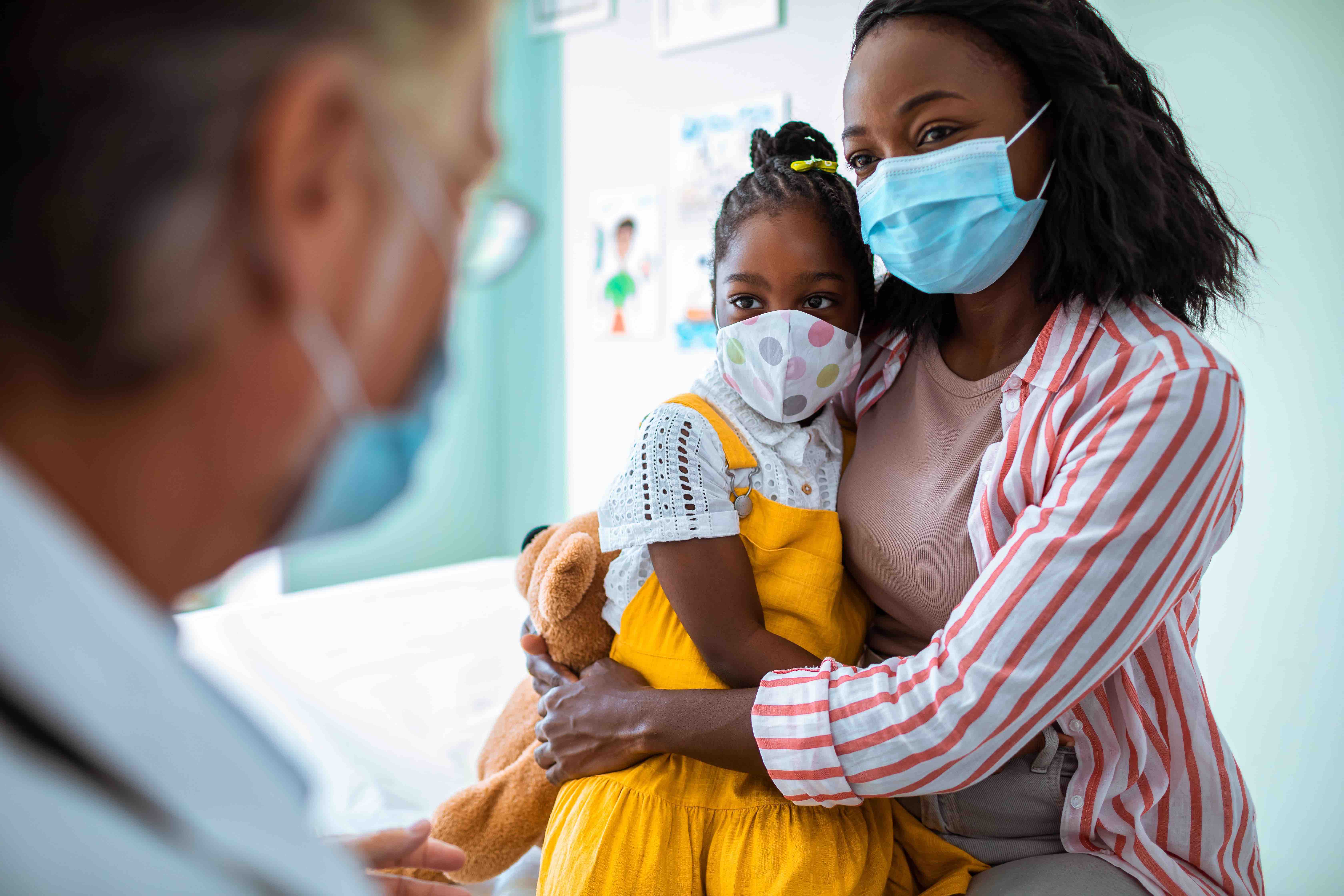| | | | | | | Presented By PhRMA | | | | Vitals | | By Caitlin Owens ·Apr 09, 2021 | | Good morning. Today's word count is 1,231, or a 5-minute read. | | | | | | 1 big thing: America may be close to hitting a vaccine wall |  Data: CDC; Cartogram: Andrew Witherspoon/Axios There are growing signs that parts of the country may be close to meeting demand for the coronavirus vaccine — well before the U.S. has reached herd immunity. Why it matters: For the last few months, the primary focus of the U.S. has been getting shots to everyone who wants them, as quickly as possible. Soon, that focus will abruptly shift to convincing holdouts to get vaccinated. State of play: Red states in the South are administering the lowest portion of the vaccine doses that they receive from the federal government — a sign of low demand, slow public health systems, or both. - The most vaccine-reluctant Americans are white Republicans, polling has found.
Driving the news: An analysis released by Surgo Ventures yesterday concluded that "the supply-demand shift for the vaccine will happen earlier than expected — as early as the end of April — and before the nation reaches the 70–90% threshold for achieving herd immunity." - It released a survey finding that 59% of U.S. adults say they're either already vaccinated, or plan to be as soon as the shot is made available to them. At the current U.S. vaccination rate, all of those vaccine-enthusiastic adults could be inoculated by the end of April.
A separate survey of rural Americans, released by KFF this morning, found that while they're more likely to have already been vaccinated than urban and suburban Americans, there are fewer remaining rural residents who are eager to get their shots. - 39% have already gotten at least one dose of the vaccine, 16% say they'll get it as soon as possible, and 15% said they want to "wait and see."
- Another 9% said they'll only get vaccinated if required, and 21% said they definitely won't.
The bottom line: Rural, Republican-heavy states are likely blowing through their vaccine-eager populations. Go deeper. |     | | | | | | 2. Scientists hunt for antiviral drugs |  Data: Milken Institute; Chart: Andrew Witherspoon/Axios Antiviral drugs can be a key pandemic-fighting tool, but so far there's only one approved in the U.S. for SARS-CoV-2, the virus that causes COVID-19, Axios' Alison Snyder reports. Why it matters: Because some people won't get vaccinated, and because there will likely be new variants of the virus, we'll need effective treatments — including antivirals, former FDA commissioners Scott Gottlieb and Mark McClellan wrote earlier this week in the Wall Street Journal. Driving the news: This week, Merck and Ridgeback Biotherapeutics said the antiviral molnupiravir "significantly reduced infectious virus in subjects in a mid-stage study after five days of treatment," WSJ reported. - Merck is expecting interim results from two later-stage clinical trials looking at whether the drug prevents hospitalization and death from the virus.
- On Tuesday, Pfizer presented details about an oral antiviral it developed from scratch during the pandemic, Chemical & Engineering News reports.
Where it stands: So far, remdesivir — a drug investigated earlier to treat Ebola and other diseases — is the only antiviral approved in the U.S. for COVID-19. - 31 other antivirals are being investigated, according to the Milken Institute's COVID-19 tracker.
- A goal for SARS-CoV-2 is to develop an equivalent to Tamiflu, an oral antiviral that can be taken at home after someone is exposed but before symptoms appear, says Armand Balboni, CEO of Appili Therapeutics, which is studying the effectiveness of another antiviral — favipiravir — approved in Japan for treating new flu strains and in Russia and India for COVID-19.
Go deeper. |     | | | | | | 3. The latest in the U.S. |  Data: The COVID Tracking Project; Note: Does not include probable deaths from New York City; Map: Andrew Witherspoon/Axios Working-age and young Latinos face disproportionately high COVID-19 death rates as states move toward reopening. Foreign-born Latinos who work essential or front-line jobs are especially in peril, Axios Latino reports. Rochelle Walensky, director of the Centers for Disease Control and Prevention, on Thursday declared racism "a serious public health threat." New York will offer one-time payments of up to $15,600 to undocumented immigrants who lost work due to COVID-19, the state legislature announced this week. Florida Gov. Ron DeSantis (R) on Thursday announced he has filed a lawsuit against the Centers for Disease Control and Prevention, demanding cruise ships be "reopened immediately." Axios Re:Cap spoke with Atul Gawande, author and Biden administration adviser, about what vaccine hesitancy means for the U.S. and the world. |     | | | | | | A message from PhRMA | | We are committed to being a part of the solution | | |  | | | | America's biopharmaceutical companies are committed to ending the pandemic by: - Continuing to develop treatments and vaccines to combat COVID-19,
- Working closely with governments, insurers and others to make sure vaccines and treatments are accessible and affordable.
| | | | | | 4. The latest worldwide |  A tiny British territory on the southern tip of Spain may now be the most protected place on Earth, with all but a sliver of the population vaccinated against COVID-19, Axios' Dave Lawler reports. Why it matters: Gibraltar offers the rest of Europe a glimpse of what life might soon be like, if supply shortfalls and vaccine hesitancy can be overcome. The backstory: With its 34,000 residents densely populated in the shadow of the Rock of Gibraltar, the territory imposed a strict lockdown last spring, knowing that any outbreak could sweep quickly through the population. - It worked for a time. Then came a brutal winter. In January alone, the death toll climbed from seven to 78. It's now at 94, on par with the highest per capita rates in Europe.
- Gibraltar has now gone two weeks without recording a case and nearly a month without a death. The coronavirus ward at St. Bernard's Hospital is empty.
How it happened: Health authorities set a goal of vaccinating 70% of the population, but worried they might not reach it due to supply limitations or skepticism in the population. - The campaign soon outpaced every other country or territory on Earth. By mid-March, every local resident over 16 had been offered a shot, as had all 14,000 cross-border workers who live in Spain.
- 85% of those eligible have already been vaccinated, and that's ticking upward as people who had been hesitant change their minds.
|     | | | | | | 5. World travel isn't simple, even for the vaccinated |  Data: Sherpa; Chart: Will Chase/Axios You've got your COVID vaccine, and the CDC says it's OK to travel this summer, even internationally. But you're likely to find that your overseas options are limited by border restrictions in many countries, Axios' Joann Muller reports. Why it matters: If you don't do your homework before traveling, you could wind up stranded in a foreign airport or quarantined in your hotel room for two weeks. Reopening international travel is not a one-sided decision. While the U.S. is ahead of most of the world on vaccinations, other countries like France are imposing new lockdowns amid fresh COVID surges as they wait for more vaccines to become available. - Knowing when and where it is safe to travel is confusing, especially because the rules change frequently.
- It's important to understand the CDC's updated travel guidance, issued April 2.
What they're saying: If you want to go to Albania, Costa Rica, the Dominican Republic, Mexico or Tanzania, you're good to go. There are no restrictions, even for those who are not vaccinated. - Other destinations, including many in the Caribbean, Eastern Europe and Africa, require visitors to have a negative COVID test before arrival.
- Some require a mandatory quarantine even with a negative test, although a few, like Iceland, have created new exemptions for vaccinated travelers.
- Many popular travel destinations, including France, Germany, Spain and Greece, remain off limits for visitors.
The catch: The trickiest part of international travel might be getting home. All travelers, including vaccinated Americans, need to test negative before boarding their return flight. Go deeper. |     | | | | | | 6. Dog(s) of the week | | Otis and Hattie. Photo: Eric Brewer Meet Otis and Hattie! - "They are both Mini Bull Terriers. Otis is the male sitting in the chair" (below), writes their dad, Eric.
- "The writing on the pillow describes Otis to a T, 'Let the Good Times Roll.' He is fun loving and a prankster. They are huge cuddlers and 'demand' their time to snuggle with us."
Otis. Photo: Eric Brewer |     | | | | | | A message from PhRMA | | We are committed to being a part of the solution | | |  | | | | As we usher in a new Congress and new administration, we can all agree that people need quality, affordable health coverage that works when they need it. - We are focused on solutions that help patients better afford their medicines and protect access to innovation today and in the future.
| | | | | | Axios thanks our partners for supporting our newsletters.
Sponsorship has no influence on editorial content. Axios, 3100 Clarendon Blvd, Suite 1300, Arlington VA 22201 | | | You received this email because you signed up for newsletters from Axios.
Change your preferences or unsubscribe here. | | | Was this email forwarded to you?
Sign up now to get Axios in your inbox. | | | | Follow Axios on social media:    | | | | | |
No comments:
Post a Comment